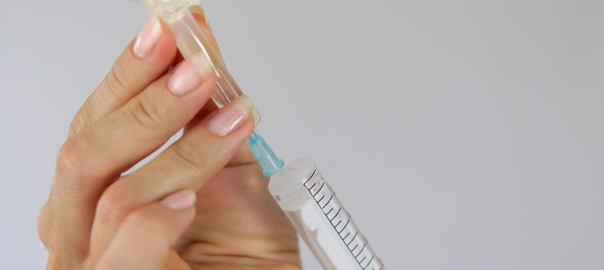Acupuncture has been gaining ground in the treatment of many conditions and side effects over the past few years. While not all experts agree on why and how well it works, one area in which the consensus seems firm is in the use of acupuncture to treat common side effects of chemotherapy.
According to numerous studies, acupuncture can be especially effective in treating nausea and vomiting that occur immediately after a chemo treatment. It can also relieve other symptoms, such as mouth dryness and general discomfort.
What Studies Say
In a study published in the Supportive Care in Cancer journal, eleven children and adolescents receiving chemotherapy received either antiemetic medication alone or together with acupuncture to alleviate side effects. According to researchers involved in the study, patients receiving acupuncture for chemotherapy not only experienced less nausea and vomiting, they were also more alert during treatment.
In 2006, The Cochrane Library conducted an analysis of numerous studies linking acupuncture to reduced side effects in chemo patients. In almost all studies, the use of acupuncture significantly reduced the appearance of acute nausea (the one that occurs during or immediately after a chemotherapy treatment). On the other hand, acupuncture was less effective in treating delayed nausea. Electro-acupuncture was also highly effective for the treatment of chemotherapy-induced acute vomiting.
Other Ways Acupuncture Can Help
While acupuncture for chemotherapy is mainly used to treat nausea and vomiting, new studies are looking into its use to treat other side effects of the treatments. One study, published on Complementary Therapies in Medicine, looked at the effect of six acupuncture sessions over a period of two weeks to help patients dealing with severe fatigue after their chemo treatments.
Patients who used acupuncture had a 36% improvement in their fatigue levels when compared to those who didn’t receive acupuncture treatment. The improvement was seen in physical fatigue and mental motivation, as well as in a general feeling of fatigue. While researchers point out that further work is needed to confirm results, acupuncture seems an effective aid to deal with cancer-related fatigue.
Promising Outlooks
Researchers are looking into new uses for acupuncture all the time. In a study published in the Journal of Traditional Chinese Medicine, researchers pointed out that electro-acupuncture can have a positive effect on immune function when used at the same time as the chemotherapy treatments are administered. In fact, patients who participated in the study experienced an increase in their immune function, including better response of T cells, as well as better activity of NK cells after a chemotherapy treatment. In comparison, patients who did not receive acupuncture for chemotherapy had lower levels of these cells after treatment.
Perhaps even more interesting is a recent Yale University study that looked into the use of acupuncture to reduce hot flashes in women receiving chemotherapy for breast cancer. While hot flashes are usually associated with menopause, chemotherapy using a specific agent (tamoxifen) can also trigger or intensified already existing hot flashes. However, patients treated with acupuncture experienced fewer hot flashes, as well as an overall sense of well-being and a reduction of other symptoms. The improvement started during the first week of treatment and continued during the following 11 weeks, where patients kept receiving both acupuncture treatments and chemotherapy.
From these results it seems clear that acupuncture for chemotherapy is a worthwhile supplementary treatment for patients to try. While not all hospitals currently arrange these treatments, cancer patients should discuss their interest with their doctors to see what options are available.


